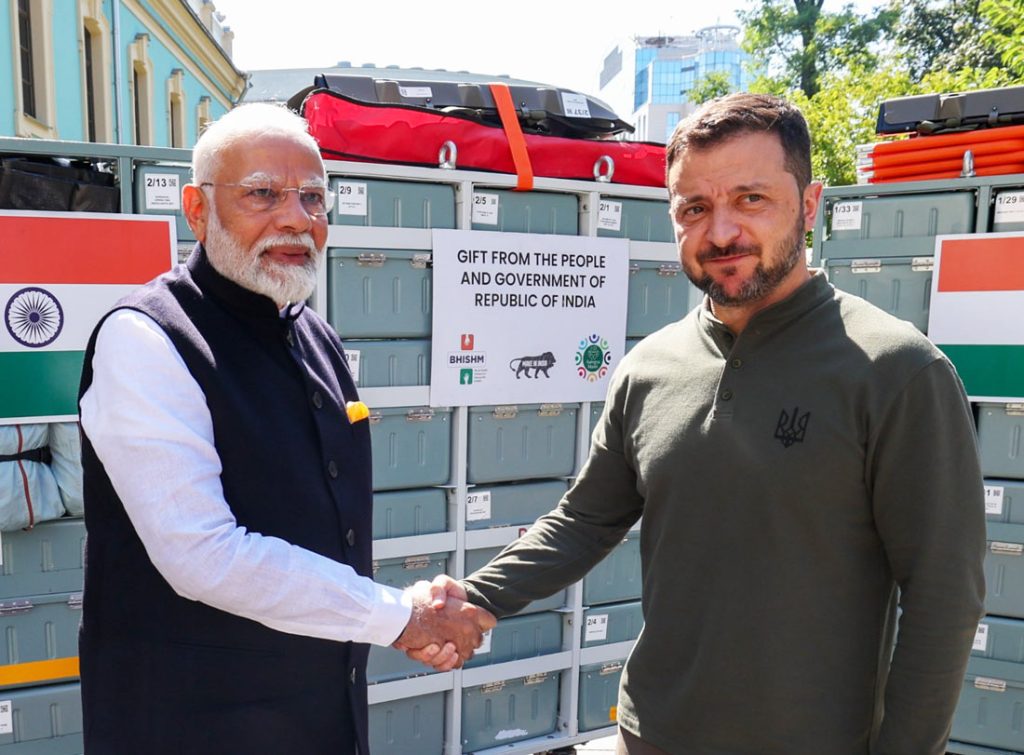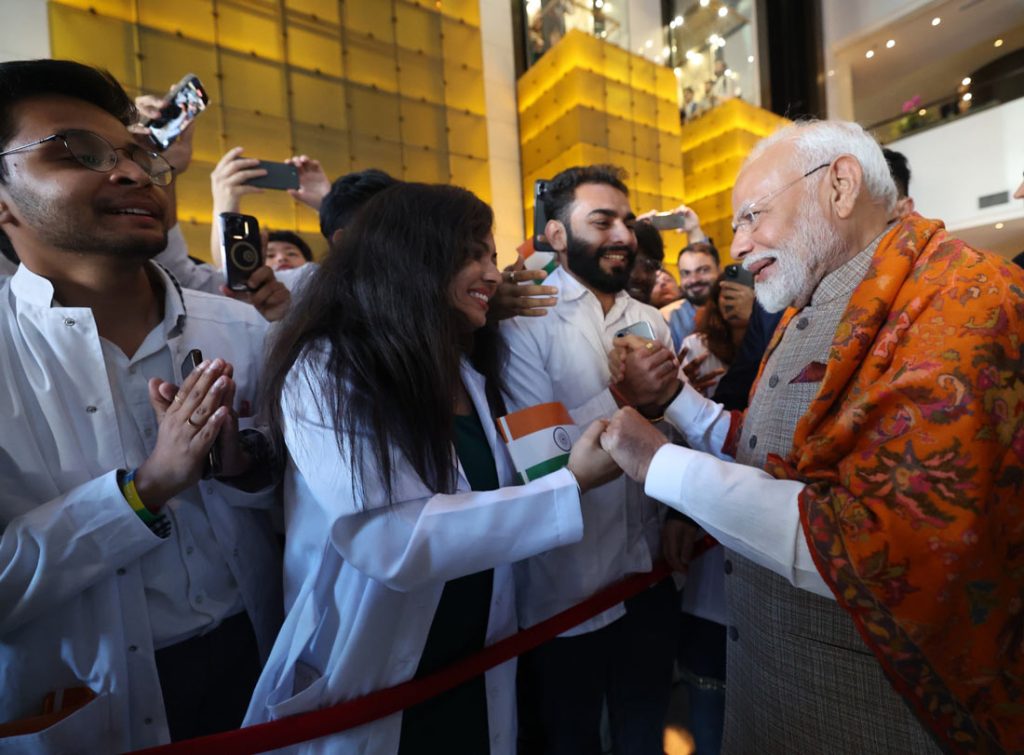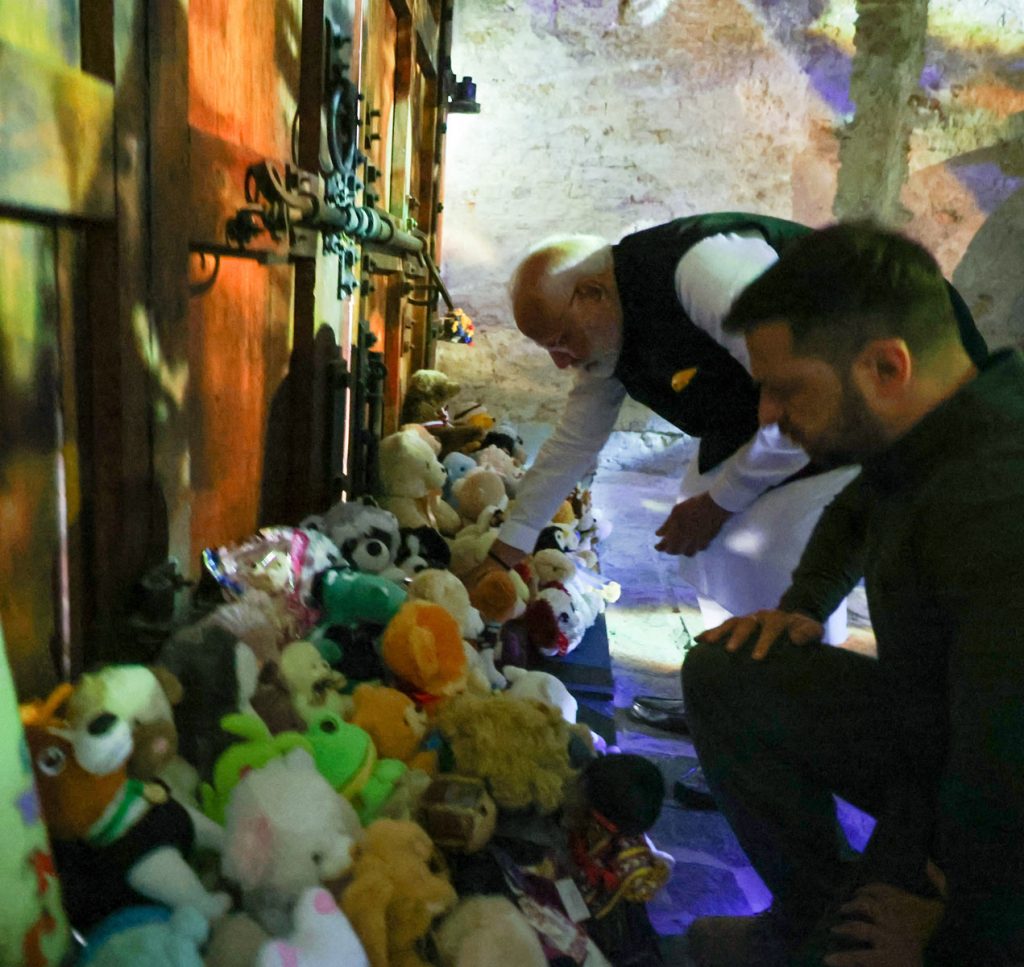
Indian Prime Minister Narendra Modi arrived in Kyiv on August 23, 2024, marking the first visit by an Indian Prime Minister to Ukraine since its independence from the Soviet Union in 1991.
The visit, which comes amid the ongoing war between Ukraine and Russia, underscored India’s nuanced foreign policy approach, which aims to balance its relations in a geopolitically sensitive region.
Upon his arrival, PM Modi was greeted by the Indian diaspora with chants of “Bharat Mata Ki Jai,” highlighting the emotional connection between India and its global community.

Talks, agreements, and a call for peace
The Prime Minister’s visit commenced with a touching moment at the Martyrologist Exposition, where he and Mr. Volodymyr Zelenskyy laid flowers, honoring the memory of children lost in the conflict and symbolizing solidarity and shared human values.

The bilateral talks between PM Modi and President Zelenskyy focused on deepening economic, technological, and cultural ties and exploring India’s role in fostering peace in the region.
Several agreements were signed during the talks, covering medical cooperation, agriculture, humanitarian aid, and cultural exchanges, signaling a new chapter in India-Ukraine relations.
Mr. Modi presented Mr. Zelenskyy with BHISHM medical supplies and equipment. The Bharat Health Initiative for Sahyog Hita & Maitri (BHISHM) is a unique effort that will ensure rapidly deployable medical facilities.
PM Modi said that peaceful conflict resolution is best for humanity. He called Ukraine a valued friend of India.
President Zelenskyy, in his social media posts, described the visit as “historic” and highlighted the agreements as steps towards a strategic partnership.
A key visit
Most importantly, the Prime Minister’s visit was closely watched for its implications in the ongoing conflict.
Mr. Modi’s visit comes weeks after he met Russian President Vladimir Putin in Moscow, indicating India’s strategic engagement with both sides of the conflict. The current diplomatic outreach has been interpreted as India’s attempt to mediate or at least facilitate dialogue, although India has maintained a stance of not condemning Russia’s actions outright, instead calling for a peaceful resolution through diplomacy.
PM Modi’s visit to Ukraine, following his trip to Poland, which was the first by an Indian PM in 45 years, further cemented India’s role as a significant player in international diplomacy. His discussions with Mr. Zelenskyy emphasized India’s commitment to sovereignty and territorial integrity, principles that resonated with Ukraine’s current struggle.
The Indian leader’s visit not only marked a significant moment in relations with Ukraine but also positioned India as a potential mediator in one of the world’s most complex geopolitical conflicts, reflecting his vision of a multi-aligned foreign policy where India engages with all major powers while safeguarding its strategic interests.